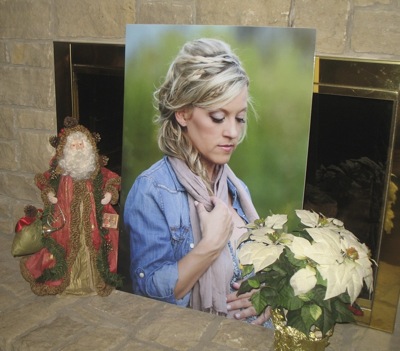Thursday, December 22nd, 2011
Law would end local control in starting algae, manure plants
By Nancy Allen
A pending law could make it easier for farmers to build manure digesters and algae growing facilities on their land.
The Ohio House of Representatives unanimously passed House Bill 276, which seeks to change the definition of agriculture and agricultural land to include anaerobic digesters and algaculture (farming of algae). This means ag land owners would not have to go before a zoning board to have their land rezoned industrial to build a digester.
The bill also calls for these facilities to be assessed real estate taxes based on the state's Current Agriculture Use Value (CAUV), which taxes farmland on its production rather than the generally higher, fair market value.
The bill is under review in the Ohio Senate.
State Rep. Jim Buchy, R-Greenville, one of the bill's sponsors, said the legislation would help livestock farmers turn a liability (manure) into an asset and is good for Ohio waterways.
"It sets the stage to reduce land application of manure, which can ultimately cause more runoff into waters, streams and lakes," said Buchy, who represents Mercer County, part of the 77th District.
Anaerobic digesters use inputs such as manure, food waste, grass clippings and crop residue to produce methane that can be converted to electricity or compressed natural gas (CNG), an alternative motor vehicle fuel. The bill stipulates that at least 50 percent of the waste put into the digester must be produced on the farm where the digester is located.
Buchy said the legislation would encourage livestock farmers in Mercer and surrounding counties to build digesters to generate electricity for their farms and/or sell it to power companies.
"It shows the world that producers are serious about being good stewards of the land and water while at the same time being able to make some profit from the waste," Buchy said. "It's just an environmentally sound practice that will help everything."
The director of the Ohio Department of Agriculture would set management practices for digesters located at large state-permitted farms, called concentrated animal feeding facilities (CAFFs).
"It's the large operations that are going to be the initial candidates for methane digesters, CAFFS," Buchy said. "These digesters are $3-$4 million capital investments, but we are trying to set the stage so that say a group of dairy farmers can go together and put up a digester."
The bill also adds algaculture to the definition of agriculture in the Ohio Revised Code. Algae, which has caused problems in many Ohio waterways including Grand Lake, can be harvested from ponds and turned into fuels, plastics, pharmaceuticals and other products.
Buchy said it would be logical to group digesters and algae farming facilities together. The phosphorous-containing effluent from the digestion process could be fed to algae, he said.
"All you need is phosphorous, water and sunlight and you can grow algae," Buchy said.
If the legislation had been law last year, it would not have stopped Butler Township officials from nixing a digester at U.S. 127 and state Route 219.
Township officials denied a request by landowner and local developer Steve Klosterman to rezone his land from agriculture to industrial for a digester. The plan called for multiple farmers bringing manure to the digester, which also would have used food waste. A facility such as this would have been considered industrial because the landowner would not have owned the facility, Buchy's office said.
Local ag consultant Tom Menke, Greenville, said the reason for the legislation is to make the law clear. Menke was a consultant two years ago on a proposed manure digester near Columbus that was scuttled after township officials deemed the facility industrial instead of agricultural because it would use food waste in addition to manure.
"It was industrial in their minds and therefore would have to get a zoning variance," Menke said. "After passage of time, the farm decided not to do it."
Buchy agreed some people may not like the legislation because it takes decisions out of the hands of local officials.
"That is one area we are looking at by having all interested parties in the room," Buchy said of criticism. "We want to be able to come up with a program that everybody is supportive of whether it be commissioners, trustees or landowners."
Matthew DeTemple, executive director of the Ohio Township Association (OTA), said the OTA did not take a position for or against the bill but did raise some concerns.
"We are concerned with any proposals which narrow the scope of authority of townships, in this case township zoning," DeTemple said in an e-mail. "We intend to continue to work with legislators as the bill makes its way through the Senate."

